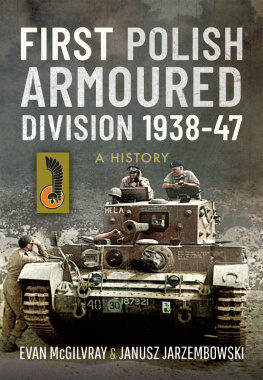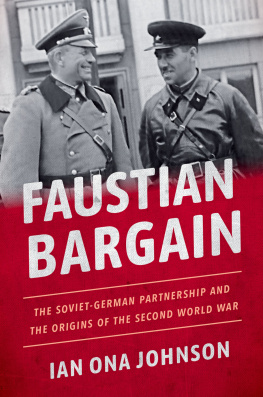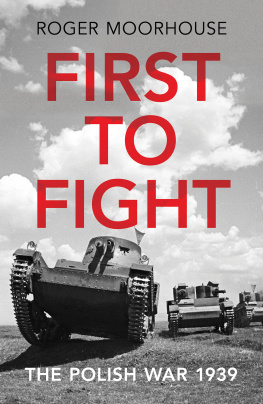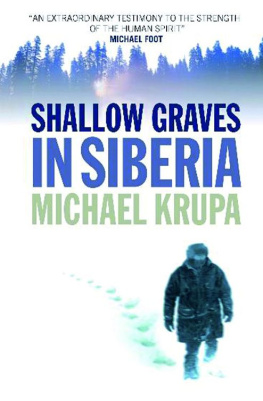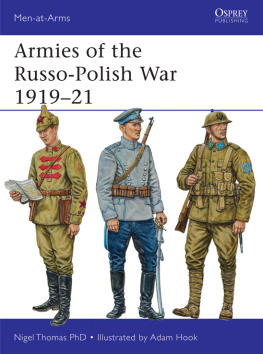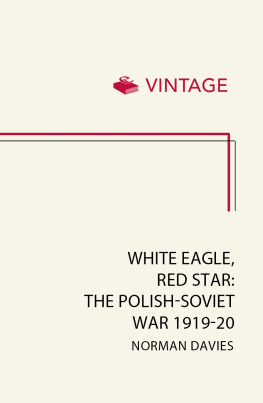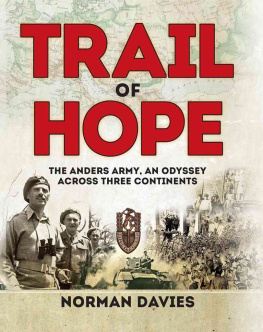The GrodyskiBrigade
AndrzejS T Grodyski
Translatedwith commentary by
Stanisaw A A Grodyski
Copyright 2012 Stanisaw A AGrodyski
All rights reserved.
ISBN-10: 1481283677
ISBN-13: 978-1481283670
FOREWORD by Stan Grodyski,son of the Author
My father (Tatu)was a stranger to me as my parents effectively separated when I was only twoyears old and as a result my brother and I were raised by my mother alone. However, through meetings later in our lives, through his letters and through myattempt to convey his thoughts by sensitively translating the unfamiliar Polishwords of his book, I believe I gathered a perception of the person that was myfather. This was a man whose early life was characterized by his Polishupbringing in a country that was still shaping its vision of independence when,while he was only sixteen, it was invaded by two of the mightiest militarypowers of the twentieth century. The full impact of the tumultuous events thatfollowed on the life of someone who had to grapple with the realities of forceddeportation to a hostile Soviet labour camp and then the emotional devastation ofthe surrender of his country to the same despotic foe that led that barbarous Sovietregime at the end of the Second World War (WWII), can never be served justicein words. That said, this book, through describing pivotal periods in thelives of a family of four people who fought against events forced upon them byPolands tyrannical imperialist neighbours, does perhaps, in a small way, providefurther testament to the valiant spirit of the many Poles who over thecenturies have fought to keep their nation alive and free, on the map as wellas in their hearts.
In a broadercontext the perspective of a post-war immigrant may resonate with others who havesettled in a foreign country. Perhaps some also see scope for improvements in positivelydeveloping local communities, social and commercial structures, as well asfinancial systems governing world trade and international aid, all within a coordinatedglobal framework of proactive environmental policies.
The strongfeeling of national identity that permeates my fathers writings certainly findsresonance with me. While working abroad for many years and perhaps through seeingGreat Britain from an external vantage, an increasing belief arose in me thatself-determination for Scotland would be the best way forward for all constituentcountries, including England, given the decline of the British Empire and theincreasing influence of the European Union on everyday lives. My grandfather,Stanisaw, apparently spoke six languages fluently and another threelanguages in passable conversation, yet his understanding of the increasinginterdependence of people around our planet never diminished his belief in an independentPoland that sadly, like many Poles who fought along side the British and AlliedForces in WWII, he did not live to see.
Finally, inspite of my own research efforts and the valued assistance of others, there arestill some fundamental questions that remain unanswered regarding my Polishancestors, such as why did my great grandfather change his name and why toGrodyski? What was the maiden name of his first wife and was he relatedto, or associated with, Jerzy or Tadeusz Grodyski, both of whom gainednational prominence in Poland? Can my own ancestral roots in fact be tracedback to Scotland, my Homeland?
Listof Contents
Introduction
I commence the writing of thisaccount of the lives of members of The Grody skiFamily in the hospital for Polish patients in Penley, North Wales, on Sunday20th February 1977. The occasion of visiting my Mother seems to mean appropriate time, not just for sentimental reasons, to begin the long-termundertaking of writing this book.
Events, experiences and viewsadduced by me in this book are based on facts that I have attempted toobjectively analyze. Personal experiences and memories which I describe are myown and personal impressions convey my own points of view.
This work provides an historicalaccount of The Grody ski Family, one of a number of Polishfamilies that chose to continue living in exile from their Homeland, andexpresses truths and opinions that remained in each of their hearts throughlong years of war, as well as through later struggles and endeavours forPoland.
It is with the young generation inmind that I am writing this book, members of our family born in Great Britainto whom I wish to bequeath a legacy of life sketches of their forebears, thenative land of their forebears and the struggle of the Polish nation in itsfight for freedom and justice around the world. Our actions and views, I dobelieve, were right and noble. Hopefully the experiences of the past will giveall of them trust in the future and in a better tomorrow.
My wish is also that this workshall spark the writing of new volumes of life histories of our families. Eachnew generation of Grody ski family should add a new book withits experiences, a subsequent undertaking which in future years might become ahighly original, and possibly unique, work in Polish literature.
COMPLETED IN LONDON IN1985
Basic Family Tree

Ancestors
Bulczyska Family
The parents of mygrandmother Teodozj Bulczyska, great-grandfather Karol Bulczyskiand great-grandmother Ludwika Bulczyska, ne Urbaska, werelandowners and lived in Pobiedziska (near Pozna), where great-grandfatherKarol died around 1867.
After the death of herfirst husband, Leo Jaruszewski, whose family also owned land near the city of Pozna,my great grandmother married for a second time, on this occasion marrying KarolBulczyski. My great grandfather Karol had only one brother, Marceli. Themarriage of my great-grandfather was blessed with three children, a son Bolesaw,a daughter Praksed and a daughter Teodozj, my grandmother. Theson, Bolesaw Wojciech Bulczyski, who married Aniel Gowack,was an apothecary and died in Pozna in September of 1933. The daughter,Praksed Bulczyska, married Kazimierz Malski, who was a merchant. Thesecond daughter, Teodozj Bulczyska, married her cousin, WacawBulczyski, a son of great-grandfather Karols brother, Marceli Bulczyski,after they received a permit to contract a marriage from the Vatican in Rome.
There were three Jaruszewskisons from the first marriage of my great-grandmother Ludwika; Wacaw,Stanisaw and Tadeusz.
Before the Second WorldWar, the descendants of my great-grandfather and great-grandmother owned thelargest huntsman store and the movie theatre named the Slonce (Sun) at thePlac Wolnoci (Freedom Square) in Pozna, as well as a large estatein the Guszyn Len (Gwushin Forest) near to Pozna. Acouple of years before the war I spent a very nice holiday there, hunting deerand game in the woods surrounding the mansion.
Bulczyski Family
Great-grandfather MarceliBulczyski, the father of my grandfather Wacaw, was an administrativeofficial of the railroad. His wifes name was Walerja, nee Mierzejewska. Theyhad two children, a son Wacaw Zbigniew, my grandfather, and a daughterHalina, who died in Warszawa (Warsaw) in 1886 at around fourteen years of age.
Matter Family
Alfons Matter, my great-grandfather,was an Englishman by birth, whose family lived near Manchester in northernEngland. Around 1853, when he was about four years old, his family immigratedto Germany where they settled. He was brought up and educated in Germany andhe became a strong German patriot which he remained until his death. After hismilitary service, my great-grandfather Alfons moved to the Polish town ofCieszyn in Slsk (Silesia), which before the First World War was underAustrian occupation. [According to Irena French who presented a biographicalsketch of Alfons in the book Grnoslzakw ywoty rwnolegee (Parallel lifestories of Upper Silesians) published by Muzeum laskiein 2012, the ancestors of Alfons lived in Cieszyn prior to the birth daterecorded on his death certificate of 9th March 1953 and records showthat Matter families were living in Cieszyn several centuries earlier, perhapshaving originally emigrated from around Bern, in Switzerland, where theCathedral (Mnster) houses the Matter Chapel containing the remarkablestained-glass window referred to as the Dance of Death.]



